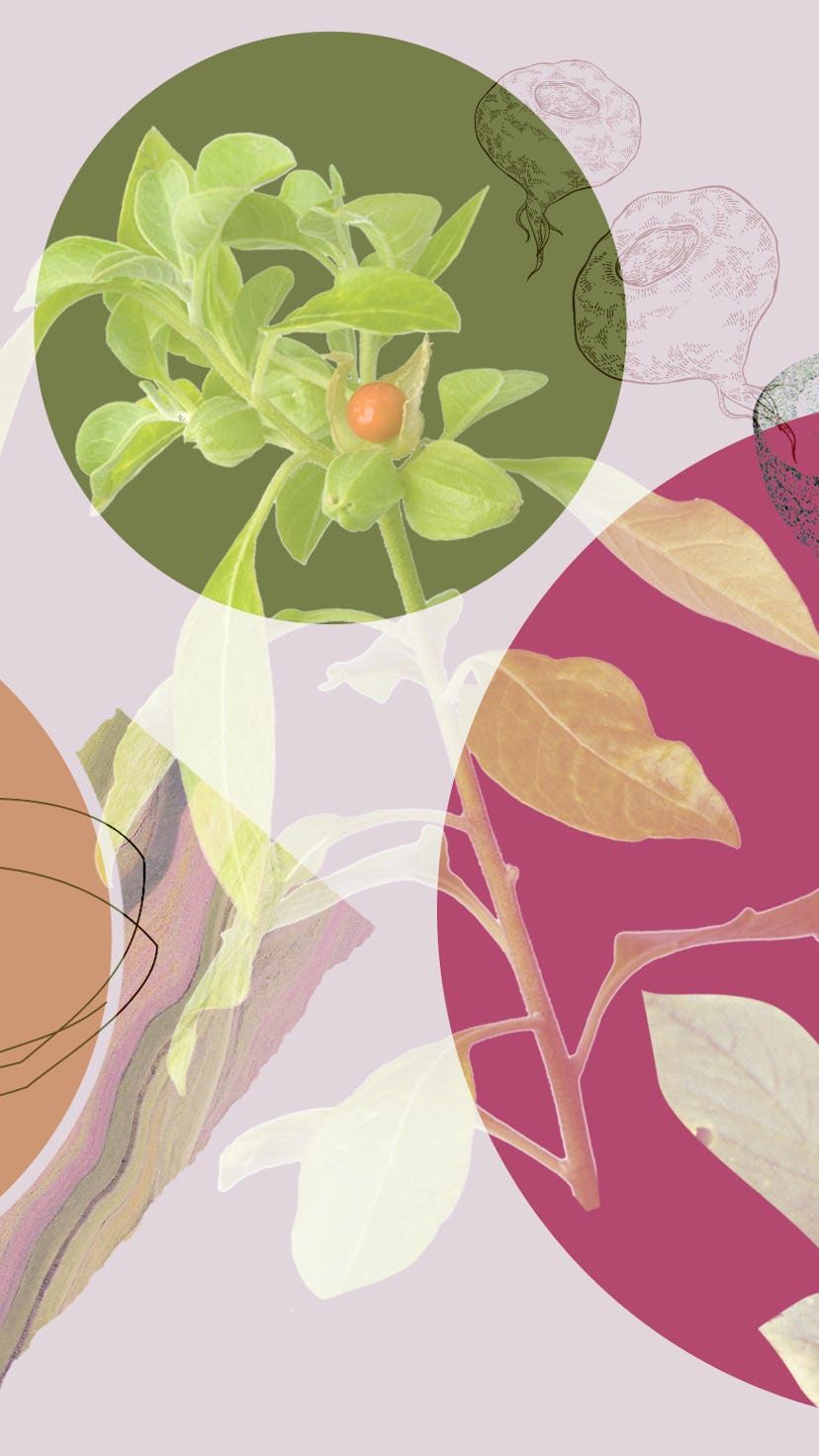Margaret Flatley/Bustle
While a wellness influencer might call adaptogens magical health potions, these herbs, mushrooms, and roots have been used in Chinese and Ayurvedic healing since 3000 B.C.E. Generally, they aim to help the body handle physical, mental, and emotional stress so you can, uh, “adapt” to your environment. While they're not regulated by the FDA, they’re generally considered healthful when you take them as pills or add them to meals directly (think cooking with turmeric or ginger).
Margaret Flatley/Bustle
“There is a lot of variability with how people respond to these herbs,” Dr. Tania Dempsey, M.D., founder of Armonk Integrative Medicine, tells Bustle. A 2018 study concludes that clinically, “their use in health care products remains in the preliminary stage.” It can be “hard to quantify how patients feel and why, especially when it comes to stress,” Dempsey says, and therefore, studies on their use might not yield conclusive answers.
Margaret Flatley/Bustle
The best adaptogen practice, according to naturopathic doctor and nurse practitioner Dr. Erica Matluck, N.D., N.P., is to use them in combination with other herbs, acknowledging that we all respond differently to stress. “Botanical medicine is an art, and it involves understanding the details and subtlety of the individual’s experience and creating a formula to address that.”
Click through to learn about 19 different adaptogens and herbal remedies and when to take them.
Margaret Flatley/Bustle
For Sunday Scaries
“When stress is keeping people up at night, ashwagandha is my first choice. It supports a good night's sleep,” Matluck tells Bustle, noting that the herb also has calming and anti-anxiety properties, too. High concentrations of the root can lower cortisol levels, according to a 2012 study.
Margaret Flatley/Bustle
When You Need To Chill Out
Matluck suggests holy basil for stress that has an emotional component. A 2017 study found the herb can help with blood pressure and stress relief, and it also has antimicrobial, antibacterial, antiviral, and antifungal properties.
Margaret Flatley/Bustle
When You Want To Wake Up Your Sex Drive
“Maca is another great adaptogen and one of my favorites for women experiencing low libido,” Matluck tells Bustle. A 2012 review suggested the herb has effects on mood and memory, too.
Margaret Flatley/Bustle
When Coffee Isn’t Cutting It
Matluck recommends Siberian ginseng for energy, while Dempsey points to its ability to lower blood sugar. Another option? Dang shen is also said to increase energy levels and stimulate appetite.
Margaret Flatley/Bustle
When You Reeeeally Don’t Want To Get Sick
Reishi, a fungus often consumed fresh or steeped in tea, can improve the immune response, lower blood pressure, and reduce inflammation. American ginseng is good for cold and flu season, on top of enhancing a general sense of wellbeing, and goji berries, bilberries, or elderberries are also tasty ways to support your immune system.
Margaret Flatley/Bustle
For Tummy Troubles
Licorice root can help to settle an upset stomach by reducing inflammation in your stomach lining and even reduce heartburn. Shatavari also soothes digestion on top of promoting fertility and reproductive health.
Margaret Flatley/Bustle
When You Need To Focus
Rhodiola is a “promising treatment” for light to moderate depression, anxiety, and chronic fatigue. Dempsey also notes that the root is “very effective for improving concentration and focus.” Schisandra is another classic adaptogen used to reduce stress and enhance concentration.
Margaret Flatley/Bustle
When You Held A Plank For Way Too Long
Notoginseng, sometimes called pseudoginseng, is used to stop or slow down bleeding (think nosebleeds) and can be used for swelling, muscle soreness, and overall pain relief. Other good anti-inflammatory adaptogens to add to a post-workout smoothie include turmeric, nettles, or cordyceps.
Margaret Flatley/Bustle
If You Always Lose Your Phone
On top of concentration-boosting herbs, try moringa. It supports healthy blood flow to the brain and improves memory, according to one 2016 review.
